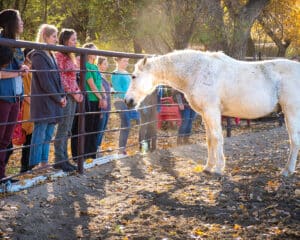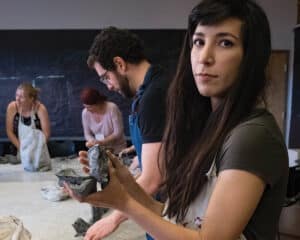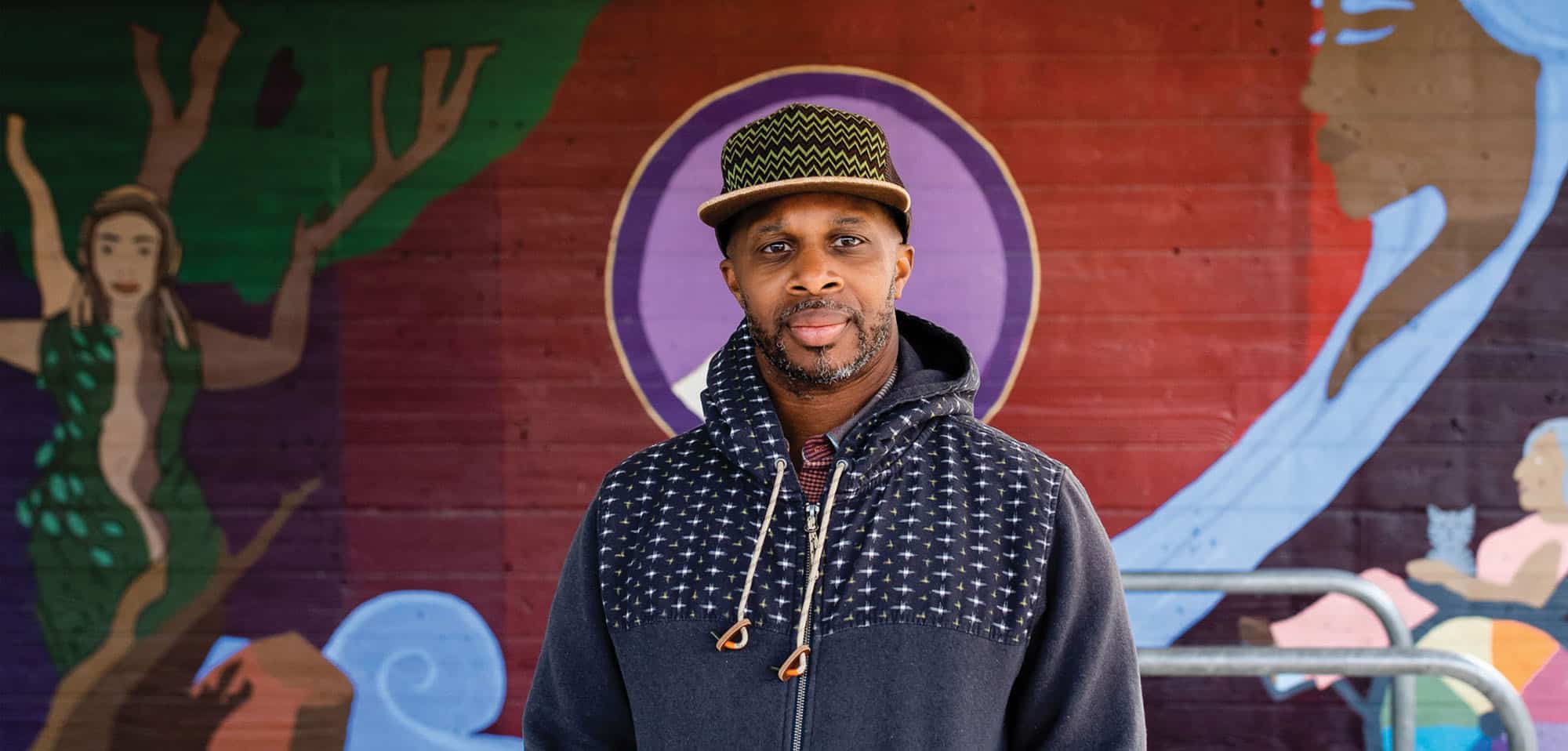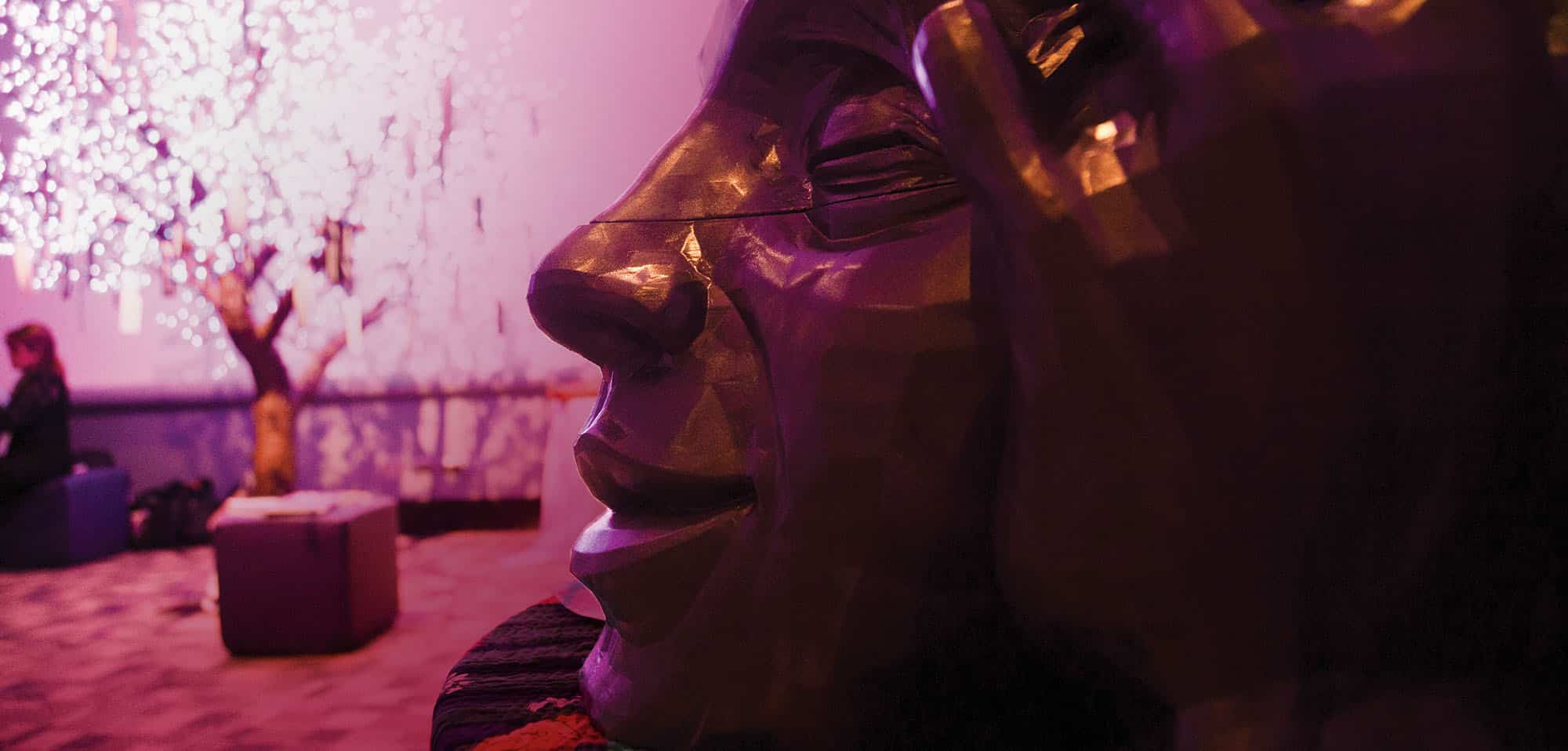Psychology & Counseling at Naropa University
As a young monk, Naropa founder Chögyam Trungpa followed a monastic path of studying the mind through rigorous training in Buddhist philosophy, but more importantly, through contemplative practice within a relational community. Upon being forced to flee Tibet because of the Chinese invasion, Trungpa was increasingly introduced to other traditions, ideas, and methods for understanding the dynamics of the inner world, the interplay of mental activity with sense perceptions, models of relationships, and novel pedagogies. Upon arriving in the West and studying at Oxford University, he engaged in ongoing dialogues between his own Tibetan Buddhist lineages and other traditions related to their respective understandings of human experience, the mind, health, and healing. While at times fiery, the spirit of these dialogues during Trungpa’s time in England was one of inclusion, mutual learning, and discovery within the context of relationships, often friendships. Curiosity and passion went in many directions, as scholars, scientists, theologians, and spiritual practitioners from all perspectives discussed, debated, and puzzled over these salient questions.
Trungpa was surprised—shocked, even—as he learned about the exclusive grounding in objectivity and empirical observation in the majority of Western traditions of psychology and counseling, which rarely took into consideration self-inquiry. This exploration was emerging at a moment when Western models of mind were being challenged within certain strands of Psychology, particularly in Humanistic and Transpersonal approaches. Additionally, most Eurocentric models were based on a liberal philosophy that privileged the individual; while important, they often minimized what Trungpa felt was a core human purpose: compassionate service to others.
When Trungpa settled in Boulder, Colorado, he sought to expand upon these dialogues, and this coincided with the founding of Naropa Institute. Psychology was of particular interest to Trunpga, as he believed that studying the mind was an essential step towards reducing suffering in the world. He introduced the idea of mental health professionals as compassionate and impactful bodhisattvas, and that framework has continued throughout the decades at Naropa and beyond.
The concept of Brilliant Sanity was developed from the Sanskrit word tathagata-garbha, which refers to the true nature or essence of mind. It has three primary qualities that are accessible to everyone in each moment: openness, clarity, and compassion.
Contemplative Psychotherapy & Buddhist Psychology
In 1976, Naropa Institute initiated its first degree program with the Master of Arts in Buddhist and Western Psychology. Drawing inspiration from the Maitri program being hosted by Marvin Casper, Trungpa worked closely with renowned psychiatrists to develop a graduate-degree training for psychotherapists. The program, which went on to have numerous names, was informed by rigorous scholarship and traditional modalities of therapeutic theory and practice, but also involved the students cultivating an awareness of their own mental processes, those of others, and the relational dynamics between beings. The vision of combining meditation practices with academic study and interpersonal exploration was carried forward by Karen Kissel Wegela, who has served the program for more than four decades. Despite changing trends in the mental health field, Wegela kept the heart of the program focused on contemplative practice and experience, compassion for others, and the cultivation of skillful means in working with others towards reducing suffering in the world. Her seminal books, The Courage to be Present: Buddhism, Psychotherapy, and the Awakening of Natural Wisdom (2009), and Contemplative Psychotherapy Essentials: Enriching Your Practice with Buddhist Psychology (2014), outline both the theory and practices of this original Naropa program.

Students in this program engage in extensive meditation practices from samatha and vipassana to secular practices in order to increase compassion, awareness, and sensitivity in the clinical setting. Among the unique aspects of the program include intensive contemplative practice retreats and in-depth study of Buddhist philosophies of mind, each semester over the course of three years. The program requires maitri practice to explore the foundational and subtle energies of the five Buddha families through specific postures in colored rooms with unique shapes and lighting. This practice builds awareness of subtle interchanges between one’s one minds and the external world in a manner that increases understanding and compassion for emotional proclivities and challenges in one’s self, as well as in clients. Students are also trained in the phenomenologically based Body- Speech-Mind supervision model, which allows clinicians to go beyond automated Western constructs of assessment and diagnosis and engage more deeply in the embodied, lived, and idiographic experiences of those with whom they work. The focus is not on labeling and categorizing, but rather connecting moment by moment within the ground of “Brilliant Sanity” in each clinical context and in each person.
The concept of Brilliant Sanity was developed from the Sanskrit word tathagata-garbha, which refers to the true nature or essence of mind. It has three primary qualities that are accessible to everyone in each moment: openness, clarity, and compassion. While many psychology and counseling modalities focus on understanding and treating pathologies, the idea of Brilliant Sanity invites the therapist to maintain a perspective of curiosity, wholeness, and health, even in the face of the most extreme and challenging states of mind. Instead of trying to label and “fix” a client, this approach involves a journey with the other person towards the recognition of an “island of clarity,” consisting in new ways of seeing the world beyond habituated patterns. This is a practice of “Basic Attending,” and it has continued to deepen and expand through the work of Windhorse Integrative Mental Health and the leadership of Naropa graduates Chuck Knapp and Jeff For tuna. In addition, this training invites therapists to explore their own states of mind and loosen preconceived notions of a fundamental separation between self and other. The edited volume Brilliant Sanity: Buddhist Approaches to Psychotherapy and Counseling, now in its second edition, highlights the views and practices of this tradition.
The Naropa Community Art Studio has brought the ability to make art in community together for many members of the community, particularly those from marginalized locations, to unlock the power of creativity and relationship as both personally and socially transformative.
Mindfulness-Based Transpersonal Counseling

In the early nineties, Naropa’s psychology programs expanded through a merger with Boulder Graduate School of Psychology. Deborah Bowman, an important leader of that school, went on to serve as dean of Naropa’s Counseling and Psychology graduate programs for many years; Deborah brought deep knowledge and practice of Gestalt Therapy, which focuses on present moment awareness and somatic reactions to build deeper connection within therapeutic relationships. The focus of the new program that emerged at this time was grounded in the long tradition of transpersonal psychology that embraces spiritual understanding, states of consciousness, and world healing traditions. With Naropa’s focus on present-moment experience and mindfulness, the name Mindfulness-Based Transpersonal Counseling, a blend of these two central foci, was chosen. Former faculty Carla Clements, PhD, carried the program for over 20 years, teaching hundreds of students and mentoring dozens of new faculty, including the authors of this article. Carla was on the ground floor of the psychodrama studies movement and research, and pioneered Naropa’s current interest and initiatives in psychedelic studies in her research on MDMA treatments for PTSD.
Other seminal faculty include Dale Asrael who has had a more than 40-year relationship with Naropa. Dale created Naropa’s mindfulness meditation program instructor training. She originally trained with Chögyam Trungpa, and has taught meditation practices and perspectives to thousands of students nationally and internationally. Francis Kaklauskas, PsyD, currently president of the American Psychological Association’s Society for Group Psychology and Group Psychotherapy, has served as an ambassador for Naropa in the broader academic world through his many edited books and publications that celebrate the work and wisdom of Naropa faculty, visiting guests, and graduates. Ian Wickramasekera, PsyD, has been awarded many career-contribution awards and has deepened our exper tise of research methodologies, diversity and inclusion, and hypnosis in his service in the Transpersonal program for over a decade. The two-volume set Shadows & Light (2016), highlight the transpersonal traditions at Naropa. These volumes bring together dozens of former Naropa psychology teachers and graduates to provide a broad and deep understanding of what makes Naropa approaches to mental health unique and powerful.

Over time, the Transpersonal program expanded to create a number of very unique specializations. Don Campbell began the music therapy program and published many books including Healing at the Speed of Sound (2011) and best-selling The Mozart Effect (1997). Laurie Rugenstein, a longtime music performer and therapist, sustained that program. Her original training in contemplative voice has helped many therapists find their true voice as a healing mechanism. She also worked with groups of students to increase awareness and mindfulness not only through singing, toning, guttural grunts, and talking, but also—highlighting perhaps the most important quality of a therapist—the art of mindful listening.
Art Therapy has been championed for decades by Michael Franklin, PhD, and continues to be a highly competitive program that fulfills requirements for students to become both a licensed counselor and a certified art therapist. The program’s expansive vision is summarized along with many practices in his writing, including the recent Art as a Contemplative Practice: Expressive Pathways to the Self (2017). The program trains students not only as counselors and artists, but also socially engaged citizens. The Naropa Community Art Studio has brought the ability to make art in community together for many members of the community, particularly those from marginalized locations, to unlock the power of creativity and relationship as both personally and socially transformative.
Nature-Based Counseling
The Nature-Based Transpersonal Counseling program, formerly Wilderness Therapy, was found by John Davis, and includes multiple retreats in the wilderness. Ecopsychology, non-clinical track, was created and led for many years by Tina Fields, PhD, and integrated the field wisdom of nature into a wider circle of society with students learning to increase their awareness and scholarship from disciplines ranging from medicine, business, and other healing traditions. Both Davis and Fields have published extensively and have leadership and consulting roles within numerous organizations.
Somatic Counseling & Dance/Movement Therapy
On a separate track, Naropa continues to focus on embodiment and somatic experiences in the Master of Ar ts in Clinical Mental Health Counseling that offers a concentration in Somatic Counseling with a track in Dance/Movement Theories & Practice. The Somatic Counseling concentration explores the body’s connections with mind and health, and the Dance/Movement Theories & Practice track trains students towards becoming licensed counselors and certified Dance Movement therapists. These unique programs integrate contemplative practices with body awareness practices, movement exercises, many forms and traditions of dance, and rigorous academic study of physiology, interpersonal neurobiology, and the interplay of mind, body, and spirit.
Longtime program faculty and program lead, Zoë Avstreih, integrated the practice of authentic movement and the teaching of Buddhist philosophy around expanding awareness. Themes explored include primordial awareness, form and formlessness, and consciously and respectfully inhabiting our bodies and our roles in our lives. Christine Caldwell, PhD, devoted 35 years to developing and leading these programs, as well as serving in many leadership positions at Naropa. Her Bodyfulness: Somatic Practices for Presence, Empowerment (2018) and other books cover a wide berth of topics with depth, integration, practicality, and somatic wisdom. Former faculty of this program Ryan Kennedy, has become a leading trainer in supervision and ethics throughout Colorado and beyond.
The Future
Individuals across the United States and the world seek out counseling, education, and collaborations with our counseling program graduates. The combination of confident yet humble presence, compassionate attuning, and critical thinking skills put many of our graduates in high demand. The training path is uniquely rigorous at Naropa. Beyond the requisite foundation of academic learning, our contemplative education approach engenders a deepening of self and relational intelligence, embodied mindful awareness, and the discipline of moment-to-moment relational attuning that can only be achieved through the crucible of the experiences Naropa offers. As we approach 50 years, the hundreds of committed hard-working faculty and thousands of courageous dedicated students all deserve recognition and celebration. In each class, they come together with focused discipline towards acknowledging and creating solutions towards reducing the suffering of others.

While there are universal goals that we all embrace in the graduate school, the path can be filled with strong feelings, moments of confusion, the recognition and navigation of difference, long nights of study, and the complexities of committing oneself to meaningful relational engagement. The individuals and communities our counseling graduates serve continue to expand in number, as the does the reach and impact of their work. Within the last 50 years, numerous individuals have helped Naropa counseling and psychology move from its initial stirrings and exploratory discourses into innumerable powerful healing connections.
At Naropa, psychology and counseling are not stagnant but dynamic, as is the world and the clients we are serving. With the spirit of exploration, inclusion, critical examination, and creativity, ‘sparks fly’ as Trungpa would say. But these sparks are grounded in the spirit of compassion and curiosity, with the guiding light of reducing suffering and service to others. Over the last 50 years, psychology at Naropa has moved from passionate discussion to a leading training institution for mental health professionals from around the world.





